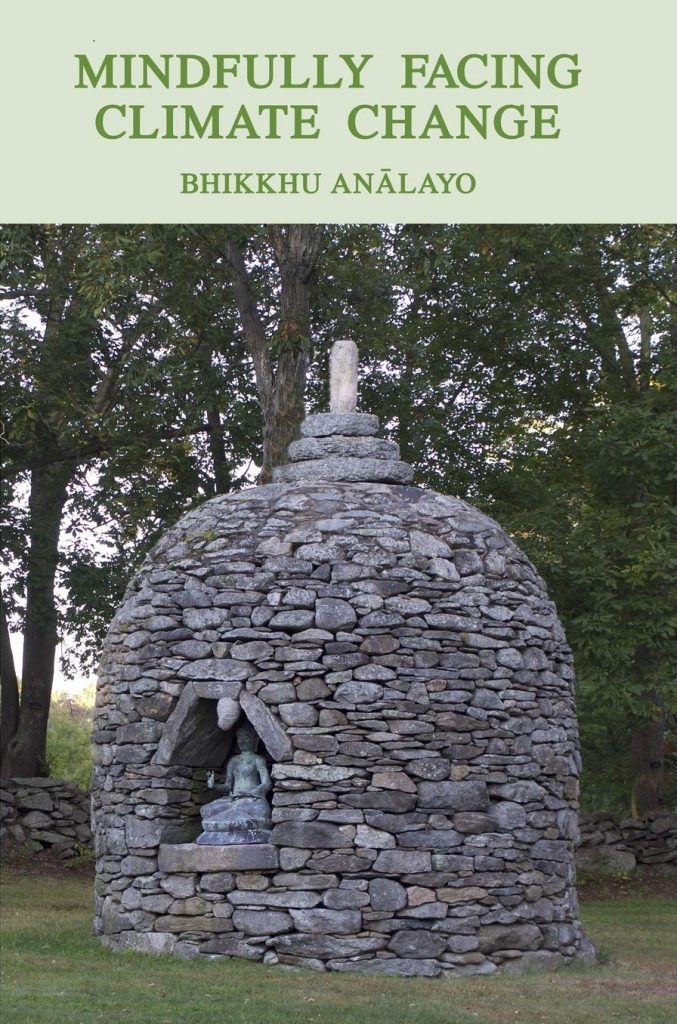Reviewed by Katja

Mindfully Facing Climate Change by Bikkhu Analayo
Bikkhu Analayo is a Theravadin monk, scholar and meditation teacher. In this book, he looks at how buddhist practice can help us facing climate change and its impacts. The book is based on a series of four talks and essays each based on one of the four noble truths. You can either watch the talks that all also include a meditation, or download the book for free. As a scholar, he is really interested in early buddhist texts and explores questions like the relationship to nature in early Buddhism and different understandings of interdependence. He gives some examples of sutras and explores what those mean for our understanding of ecology and acting on climate change. I’ve found this to be really helpful knowledge when talking to other Buddhists who might be skeptical about why buddhists should need to act on climate change. The other area of inquiry is how to not be overwhelmed and here his approach is based on the Brahma viharas/divine abodes. There is also a conversation with him and Joseph Goldstein on the website introducing the topic: Mindfully Facing Climate Change
Katja is a member of XR Buddhists

I found the book useful for practice and facing climate change. His intent is summarized strongly, I think, in these statements:
“In the case of compassion, the near enemy is worldly grief.*
“In the face of the catastrophic repercussions of climate change and the vast scale of suffering, avoiding this near enemy is easier said than done. Here, it can be particularly helpful to rely on mindfulness. Just as mindfulness enables being with physical pain without either switching off or else resisting**, similarly mindfulness can ease the mental pain of facing the horror of what human beings are doing to themselves and other sentient beings on this planet. Relying on mindfulness as the main tool ensures that any grief or sadness that has manifested is not just being suppressed. Instead, it is witnessed but not acted out.” — p106
In his conclusion, he re-iterates:
“The cultivation of mindfulness to face climate change rests on the compassionate intention for the absence of harm. It monitors and fine tunes the contribution made by compassion, ensuring that one neither succumbs to its near enemy of grief nor switches off due to being unable to face it any longer.” — p159
* recall: …the notion of near enemies to each of the four divine abodes is that certain unwholesome states can be mistaken for being the desired wholesome quality. In the case of compassion, the near enemy is worldly grief.
** Anālayo 2016: “Mindfully Facing Disease and Death, Compassionate Advice from Early Buddhist Texts”, Cambridge: Windhorse Publications
Thanks Leif, that’s a great selection of quotes.